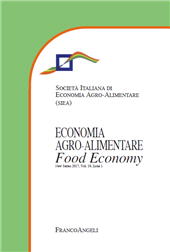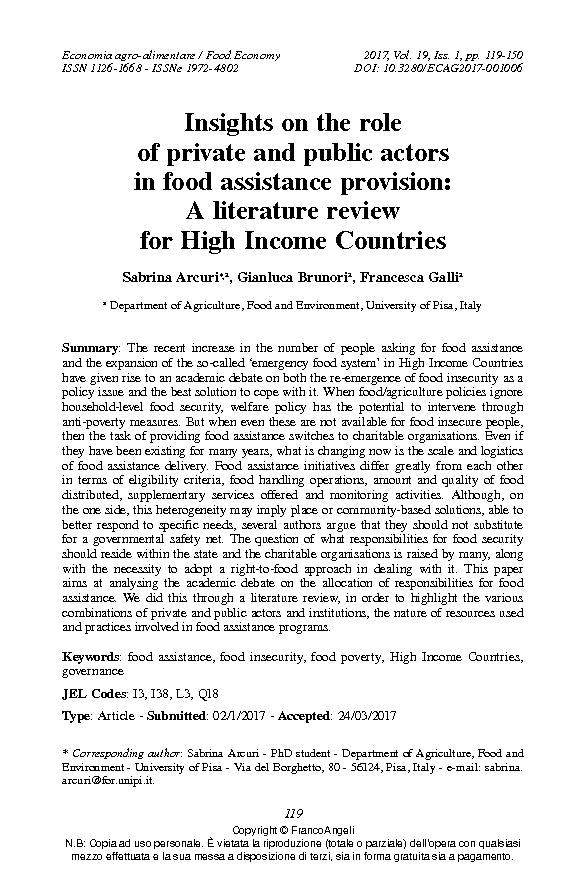Insights on the role of private and public actors in food assistance provision : a literature review for High Income Countries
119-150 p.
The recent increase in the number of people asking for food assistance and the expansion of the so-called 'emergency food system' in High Income Countries have given rise to an academic debate on both the re-emergence of food insecurity as a policy issue and the best solution to cope with it. When food/agriculture policies ignore household-level food security, welfare policy has the potential to intervene through anti-poverty measures. But when even these are not available for food insecure people, then the task of providing food assistance switches to charitable organisations. Even if they have been existing for many years, what is changing now is the scale and logistics of food assistance delivery.
Food assistance initiatives differ greatly from each other in terms of eligibility criteria, food handling operations, amount and quality of food distributed, supplementary services offered and monitoring activities. Although, on the one side, this heterogeneity may imply place or community-based solutions, able to better respond to specific needs, several authors argue that they should not substitute for a governmental safety net. The question of what responsibilities for food security should reside within the state and the charitable organisations is raised by many, along with the necessity to adopt a right-to-food approach in dealing with it. This paper aims at analysing the academic debate on the allocation of responsibilities for food assistance. We did this through a literature review, in order to highlight the various combinations of private and public actors and institutions, the nature of resources used and practices involved in food assistance programs. [Publisher's Text].
Ist Teil von
Economia agro-alimentare : XIX, 1, 2017-
Artikel aus derselben Ausgabe (einzeln erhältlich)
-
Informationen
ISSN: 1972-4802
THEMENBEREICHE
KEYWORDS
- Food assistance, food insecurity, food poverty, High Income Countries, governance



